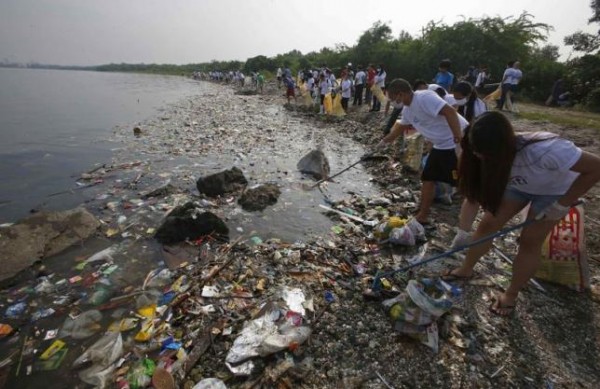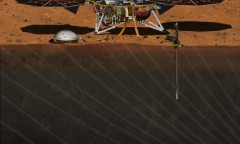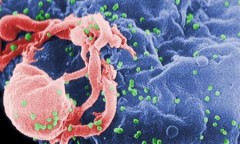By Lynn Palec, | March 13, 2016

Volunteers collect garbage along the shore off Manila Bay, during an environmental project marking World Oceans Day in Paranaque, Metro Manila.
Statistics reveal that more than 311 million tons of plastic is produced all over the globe on an annual basis and only 10 percent of this figure makes it back to recycling plants. Disposing and recycling plastic is one of world's biggest problem. On the other hand, scientist working on a plastic recycling plan in Japan have found a new strain of bacteria that is able to consume the most common type of plastic.
Like Us on Facebook
The bacteria is called Ideonella sakaiensis 201-F6 and it can degrade ethelene terephthalate which is commonly known as PETE or simply PET. What is even more astonishing is the rate of how the bacteria can work its way through a load of this type of plastic.
Based on the report published by the researchers, the bacteria can degrade PET in as little as six weeks. This is an impressive figure especially when compared to other biological agents like a related bacteria, a fungus enzyme and leaf compost.
Some of the most common uses of PET include food containers, disposable bottles and polyester fibers. While the study presents interesting facts, it is important to note that the experiment was conducted under laboratory conditions. The scientists working on the research have yet to evaluate the real world application of the bacteria or whether it will behave the same way once it is released on a landfill.
In an email sent to Christian Science Monitor, scientist Kohei Oda wrote, "We hope this bacterium could be applied to solve the severe problems by the wasted PET materials in nature."
Oda added that the research is just the first step towards creating a practical solution to the world's plastic pollution problems.
Initial genetic examination revealed that the Ideonella sakaiensis 201-F6 have evolved enzymes as response to the accumulation of the plastic in the environment over the period of 70 years. Experts believe that such a rapid bacterial evolution is possible since microbes are known to have an extraordinary ability to adapt to their surroundings, according to The Guardian.
On the other hand, potential application of the bacteria remains a mystery. Some scientist believe that they can use the bacteria as a biological agent in nature, although this possibility will have to be studied first before being applied in a real world scenario.
-
Use of Coronavirus Pandemic Drones Raises Privacy Concerns: Drones Spread Fear, Local Officials Say

-
Coronavirus Hampers The Delivery Of Lockheed Martin F-35 Stealth Fighters For 2020

-
Instagram Speeds Up Plans to Add Account Memorialization Feature Due to COVID-19 Deaths

-
NASA: Perseverance Plans to Bring 'Mars Rock' to Earth in 2031

-
600 Dead And 3,000 In The Hospital as Iranians Believed Drinking High-Concentrations of Alcohol Can Cure The Coronavirus

-
600 Dead And 3,000 In The Hospital as Iranians Believed Drinking High-Concentrations of Alcohol Can Cure The Coronavirus

-
COVID-19: Doctors, Nurses Use Virtual Reality to Learn New Skills in Treating Coronavirus Patients











